Enclosures for shower are one of the most important decisions a homeowner makes during a bathroom remodel. A well‑chosen shower enclosure brings waterproofing, convenience, and style to the bathroom while also boosting home value. Today, design preferences are split between framed systems—which are budget-friendly and easier to install—and frameless glass systems, which offer a seamless, modern look but come at a higher cost.
In this guide, you’ll learn about types of shower enclosures, costs, design trends in 2025, installation advice, maintenance insights, buyer mistakes to avoid, and eco-friendly considerations. By the end, you’ll know exactly how to choose the right enclosure for your bathroom, whether you’re remodeling a small unit or upgrading a luxury master suite.
What Are Enclosures for Shower ?
When planning a bathroom remodel, choosing the right enclosures for shower is essential. According to the U.S. Environmental Protection Agency (EPA), proper bathroom ventilation and water-resistant enclosures help prevent mold growth and structural damage. A well-designed shower enclosure not only prevents water damage and mold but also enhances the visual appeal of your bathroom and increases your home's value. From framed to frameless systems, there’s a wide variety of options to match your style, space, and budget.
Framed vs Frameless Enclosures
Framed enclosures feature thinner glass panels supported by a solid metal frame. They are a budget-friendly option and often come in prefab shower kits, making them ideal for DIY projects. Homeowners appreciate their durability against knocks and ease of installation.
Pros: Affordable, DIY-friendly, strong against impacts
Cons: Metal frames can corrode over time, and the design may appear bulkier
Frameless enclosures, on the other hand, use thicker tempered glass with minimal metal support. These units create a clean and open look, often becoming the highlight of luxury remodels. Based on a report by the National Association of Realtors (NAR), modern bathroom upgrades, including frameless glass shower enclosures, can increase a home’s resale value.
Pros: Sleek, modern appearance; opens up space visually; premium property upgrade Cons: Higher upfront cost, professional installation recommended, risk of water leaks if misaligned
Common Types of Shower Enclosures
Choosing the right type of enclosure depends on your shower area, bathroom layout, and budget. Here are the most popular options:
Sliding / Bypass Doors Two glass panels slide past each other, making this a space-saving choice. Ideal for small bathrooms or alcoves, they are cost-effective and easy to maintain.

Hinged or Pivot Doors These doors swing open like a traditional door, offering a solid, classic feel. They work best in larger bathrooms with enough floor space for the door swing.

Neo-Angle Enclosures Designed for corner spaces, neo-angle enclosures feature a diagonal door opening. They are perfect for optimizing tight spaces while maintaining style.

Walk-In Enclosures Walk-in showers have an open-concept design, usually with a fixed glass panel and no door. They offer excellent accessibility and a modern look, making them a popular choice for home improvements that consider aging-in-place.

Full Enclosure Systems These systems completely surround the shower with glass walls, sometimes integrated with a tub below. Often custom shower designs, they are ideal for upscale remodels where both aesthetics and functionality are priorities.

Why Shower Enclosure Choice Matters
Selecting the right enclosures for shower is more than a design decision—it impacts safety, functionality, and long-term costs.
Waterproofing: Proper enclosures prevent leaks, mold, and damage to tiles and surrounding surfaces.
Bathroom Design: Unlike shower curtains, glass enclosures visually open up the space, creating a modern, airy feel. They also allow natural light to flow freely, enhancing the bathroom’s overall ambiance.
Property Value: Frameless enclosures are often listed as a premium feature in real estate listings. Choosing a frameless or custom shower can significantly enhance the appeal of your home to buyers, while framed units provide an economical solution for short-term upgrades or rental properties.
Shower Enclosure Costs in 2025: How Much is a New Shower ?
When planning a bathroom remodel, understanding the shower enclosure costs in 2025 is crucial for budgeting and design decisions. How much does a shower remodel cost? The final price depends on the type of enclosure, the materials you choose, the size of your shower area, and whether you hire a professional or install a prefab shower yourself. Knowing the costs upfront helps homeowners avoid unexpected expenses and make smarter home improvement choices.
Average Prices
The average cost of a shower remodel varies widely depending on your preferences:
- Framed door only: $300–$1,200
- Frameless door: $1,000–$2,500
- Full framed enclosure: $2,820–$7,185
- Full frameless enclosure: $2,300+
- General shower glass door install: $532–$1,376 (average $946)
These prices reflect both materials and labor but can fluctuate depending on your location and the quality of materials you choose.
Cost Breakdown by Type
| Type of Enclosure | Framed Cost | Frameless Cost | Semi-Frameless |
| Bypass / Sliding | $250–$780 | $450–$1,450 | $350–$1,100 |
| Hinged / Pivot | $200–$750 | $300–$1,220 | $300–$850 |
| Neo-Angle | $500–$1,000 | $550–$1,250 | $500–$1,400 |
| Full Enclosure | $500–$1,000 | $700–$2,000 | – |
Labor costs typically range from $50 to $100 per hour, with professional frameless installations often taking 2–4 hours. DIY installation of a prefab shower can save money but may require a full day, especially for framed enclosures.
Is a Frameless Shower Worth the Extra Cost?
Many homeowners find frameless shower systems worth the investment, especially when resale value is a priority. Frameless designs enhance the bathroom with a bright, open feel and a sleek, modern aesthetic.
However, frameless enclosures are more expensive upfront, and improper installation can lead to water leaks, costly repairs, or the need to replace the entire system. Homeowners often comment that framed enclosures make sense for rentals or short-term remodels, while frameless options are better suited for long-term home improvement projects.
Tips for Managing Shower Remodel Costs
- Materials matter: Choosing higher-quality tempered glass, durable hardware, or special coatings can increase costs but improve longevity.
- DIY vs Professional: Installing a prefab shower yourself saves labor costs but requires accurate measurements.
- Replacement planning: If you plan to replace an existing shower, consider the condition of tiles, drains, and walls to avoid unexpected expenses.
- Budget realistically: For an average shower remodel cost, set aside extra funds for labor, custom materials, or potential adjustments.
Design & Market Trends for 2025
As homeowners continue to prioritize both style and functionality, enclosures for shower have become a central focus in modern bathroom design. In 2025, several trends are shaping the market, from materials and finishes to innovative coatings and sustainability. Understanding these trends can help you select the right door type and materials you choose to match your home’s style and long-term home improvement goals.
Frameless Glass Remains a Top Choice
Frameless glass enclosures continue to dominate upscale remodels. Their clean, open design visually enlarges the shower area, creating a luxurious and modern look. Homeowners often prefer frameless systems for custom showers, as they allow for a wide variety of configurations, panel sizes, and hardware options.
Popular Hardware Finishes
Hardware finishes are no longer limited to traditional chrome. In 2025, the leading styles include:
- Matte black – adds a bold, contemporary statement
- Brushed brass – creates a warm, elegant touch
- Minimalist handles – maintain a sleek, modern aesthetic
Selecting the right finish ensures your shower enclosure matches the overall design of your bathroom, from tiles to vanities, giving a cohesive, high-end feel.

Smart Glass & Advanced Coatings
Technology is increasingly influencing bathroom remodels. Smart glass and specialized coatings are gaining popularity due to their convenience and long-term benefits:
- Self-cleaning coatings – reduce the need for frequent scrubbing
- Antimicrobial glass – protects against bacteria and mold growth
- Eco-certified materials – support sustainable remodeling practices
These innovations enhance the durability and functionality of solid glass panels, making them a practical choice for both frameless and semi-framed enclosures.
Sustainability & Eco-Friendly Practices
Sustainability is a key trend in 2025 bathroom remodels. Homeowners increasingly demand eco-friendly materials that help prevent mold, improve water efficiency, and reduce environmental impact. Pairing water-saving shower heads with modern glass enclosures can contribute to lower utility bills while maintaining a stylish design.
Investing in sustainable materials not only benefits the environment but also aligns with home improvement strategies that increase long-term property value.
Key Takeaways
- Frameless glass remains the preferred choice for modern, upscale remodels
- Hardware finishes like matte black, brushed brass, and minimalist handles are trending
- Smart glass and antimicrobial coatings improve maintenance and hygiene
- Sustainable materials and water-efficient systems are in demand for eco-conscious homeowners
- Choosing the right door type and materials you choose ensures both style and durability
By following these trends, homeowners can create a solid, visually appealing shower area that combines aesthetics, functionality, and long-term value.
Choosing the Right Enclosure for Your shower
Selecting the ideal enclosures for shower is a key step in any bathroom remodel. The right choice balances functionality, style, and budget while maximizing the use of your shower area. Considering your needs upfront can prevent costly mistakes, ensure long-term durability, and enhance the overall value of your home improvement project.
Key Decision Factors
When choosing a shower enclosure, several factors should guide your decision:
- Bathroom Size: In small bathrooms, sliding doors or neo-angle setups are highly effective. They save space without compromising usability, making them ideal for compact shower areas.
- Budget: Framed enclosures are the most cost-effective option and often come in prefab shower kits suitable for DIY installation. Frameless enclosures, while more expensive, provide a high-end look and can increase resale value.
- Accessibility: For aging-in-place or mobility-friendly designs, walk-in showers with flush, barrier-free bases provide safe, easy access.
- Design Style: The clarity of the glass, hardware finish, panel configuration, and overall aesthetic play a major role in ensuring your shower matches the rest of the bathroom. Choosing materials you choose carefully also impacts long-term durability and maintenance.
Buyer’s Toolkit: Avoiding Mistakes
Even experienced remodelers can make errors when installing a shower enclosure. Consider these tips to avoid costly problems:
- Measure Twice: Walls that aren’t perfectly square may require custom cuts or adjustments, especially for frameless or neo-angle designs.
- Drain Location: Poor placement can lead to leaks or water pooling, creating a need to replace tiles or even the shower system later.
- Door Clearance: In limited spaces, avoid pivot doors as they require extra room to swing open. Sliding or bypass doors are better suited for tight areas.
Best Enclosures for Small Bathrooms
Small bathrooms benefit from space-efficient enclosures:
- Sliding Doors: Compact, practical, and cost-effective—many options are under $1,000.
- Neo-Angle Enclosures: Utilize corner spaces effectively while adding a modern touch.
Both options are excellent for homeowners looking to remodel on a budget or for those seeking a prefab shower that’s quick to install. Careful planning ensures your remodel stays within average costs for small bathrooms while maximizing functionality and style.
Installation: DIY or Professional?
Installing enclosures for shower can be a straightforward task or a complex project, depending on the type of system you choose. Deciding between a DIY installation or hiring a professional requires understanding the challenges, costs, and time involved. Making the right choice ensures long-term durability, prevents leaks, and keeps your bathroom remodel on budget.
DIY-Friendly Options
For homeowners seeking a budget-friendly home improvement project, prefab shower kits with framed enclosures are ideal. These kits are designed for straightforward assembly using basic tools and can often be completed in a single day.
Benefits of DIY installation:
- Cost-effective: Often under $1,000 for materials and basic tools, helping keep the average cost of shower remodel low.
- Simple setup: Prefabricated panels and pre-drilled holes simplify alignment and installation.
- Flexible design: Many kits offer a variety of door types and finishes to match your bathroom style.
While DIY is feasible for framed systems, careful attention to measurements and leveling is still essential to avoid the need to replace panels later.
Why Frameless Needs Professionals
Frameless enclosures require precise measurements and specialized tools. Even a small misalignment can lead to water leaks, mold growth, or long-term damage. Professional installers ensure the waterproof sealing is properly applied and the solid glass panels are safely mounted.
Key reasons to hire a pro for frameless installation:
- Precision: Every panel must be measured and leveled with exact accuracy.
- Sealing expertise: Poor sealing can result in water damage and costly repairs.
- Complex hardware: Frameless designs often include advanced handles, hinges, and stabilizing bars that require professional skill.

Installation Time
- Frameless installation by a professional: 2–4 hours
- DIY framed installation: Typically 1 full day, sometimes longer depending on wall alignment and customization
Choosing the right installation method not only affects the cost to replace shower in the future but also ensures your shower area remains leak-free and stylish for years to come.
Real-World Case Studies
DIY Framed Under $1,000
A homeowner shared on Reddit they saved money, but wrong wall measurements forced buying a custom side panel—delayed project by weeks.
Luxury Frameless Remodel
A remodeled master bath used frameless with brass hardware, boosting resale value within a year.
YouTube Learnings
Renovation channels often warn about uneven walls and poor sealing causing long-term water damage.
Maintenance & Long-Term Care
Proper maintenance is key to ensuring your enclosures for shower remain functional, attractive, and durable for years. Regular care not only prevents costly shower repair but also extends the life of your investment, whether you installed a framed, frameless, or prefab shower system.
Daily and Weekly Cleaning
Routine cleaning is essential to prevent mineral buildup, soap scum, and mold growth. Follow these simple steps:
- Vinegar-water solution or mild glass cleaner: Wipe down glass panels at least once a week to maintain clarity and shine.
- Squeegee after every shower: Removing water from glass prevents mineral spots and reduces long-term cleaning needs.
- Tile and drain care: Regularly check surrounding tiles and drains to prevent water pooling, which could require replacement or shower repair.
Framed vs Frameless Maintenance
Different door types and enclosure styles require tailored care:
Framed Enclosures:
- Monitor metal frames for rust and mold, especially near seals.
- Clean regularly to prevent buildup around joints and corners.
- Framed systems may require occasional touch-ups or replacement of hardware over time.
Frameless Enclosures:
- Generally low-maintenance due to solid glass panels.
- Seals and hinges need occasional lubrication to maintain smooth operation.
- Proper care prevents leaks and prolongs the life of the enclosure, avoiding costly shower repair in the future.

How Long Do They Last?
The lifespan of a shower enclosure depends on materials, installation quality, and maintenance:
- Frameless Enclosures: 20+ years with proper care; solid tempered glass and quality hardware ensure longevity.
- Framed Enclosures: Approximately 15–20 years; frames may wear over time, especially if exposed to moisture.
Regular maintenance, combined with careful selection of materials you choose during installation, can maximize durability and minimize the need to replace your shower in the long term.
Eco-Friendly & Safety Certifications
- Look for enclosures with tempered or laminated safety glass (ANSI, ASTM standards).
- For green remodeling, check if the glass supports LEED credits.
- Water-saving shower heads often pair with glass enclosures for eco-friendly remodels.
Conclusion & Takeaways
- Framed units = affordable and DIY-friendly.
- Frameless units = elegant, modern, long-lasting—better for resale but pricier.
- Trends for 2025: Frameless, smart coatings, bold hardware finishes.
- Homeowner tips: Measure carefully, set a realistic budget, think about accessibility, and hire pros for frameless installs.
In the end, the right enclosure makes your bathroom safer, brighter, and more valuable.
Frequently Asked Questions
1. What is the average cost of a shower enclosure?
Well, if you’re just looking at a standard installation, you’re probably looking at around $946 on average. Of course, it really depends on the door type and materials you choose. A full framed unit can easily run over $3,000, while a frameless enclosure—which gives that modern, open look—often tops $2,000. If you’re thinking about budgeting for a shower remodel cost, it’s always smart to plan a little extra for labor or any adjustments to your shower area.
2. What can I use instead of a shower door?
There are a couple of options if a full glass door isn’t your style or budget. Shower curtains are obviously the cheapest and quickest fix—they’re easy to swap out and come in a huge variety of patterns and colors to match your bathroom. But keep in mind, they won’t seal water as well as a glass enclosure, so you might end up with some splashes on your tile or floor. Another option is an open walk-in design, which is especially popular for barrier-free, accessible showers.
3. How much is it to have a shower enclosure installed?
Labor costs vary, but generally you’re looking at $50–$100 per hour. For a frameless installation, pros usually need 2–4 hours to get everything perfectly aligned and watertight. On the other hand, installing a prefab shower or framed enclosure yourself can save quite a bit—sometimes it can be done in a single day with basic tools. Just make sure you measure your shower area carefully so you don’t have to replace panels later.
4. Can you fully enclose a shower?
Absolutely! If you want total coverage, a full-frame or frameless glass enclosure can wrap around three walls and the base. This is a great option if you’re concerned about water getting out or if you’re trying to create a high-end look in your home improvement project. Full enclosures also make it easier to match the tile and other bathroom fixtures, giving a sleek, cohesive design.
5. What is the best material for a shower enclosure?
Tempered safety glass is pretty much the gold standard. It’s strong, durable, and safer than regular glass. Many frameless or semi-frameless enclosures also come with coatings that resist stains, soap scum, and even bacteria—so you spend less time cleaning and more time enjoying your bathroom. When picking materials you choose, think about both style and maintenance: solid, clear glass looks modern, but textured or frosted options can offer extra privacy while still matching the rest of your bathroom.

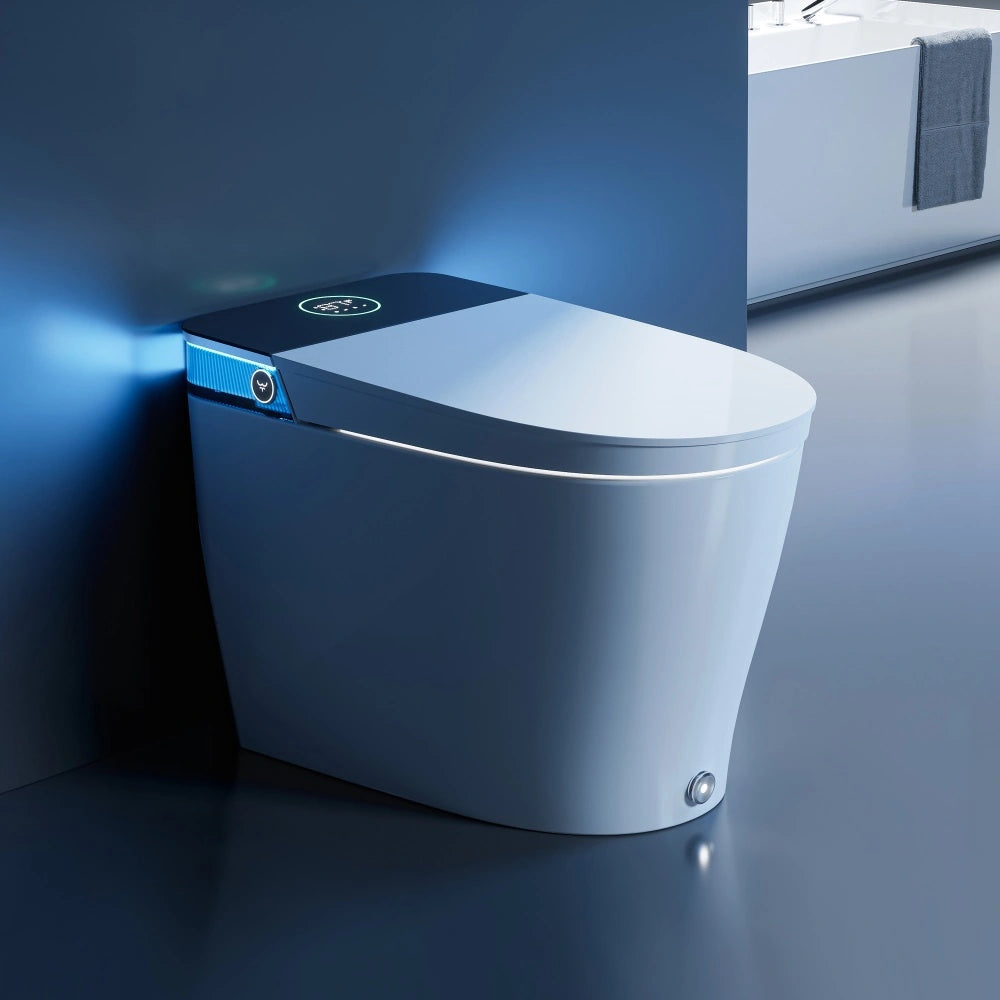
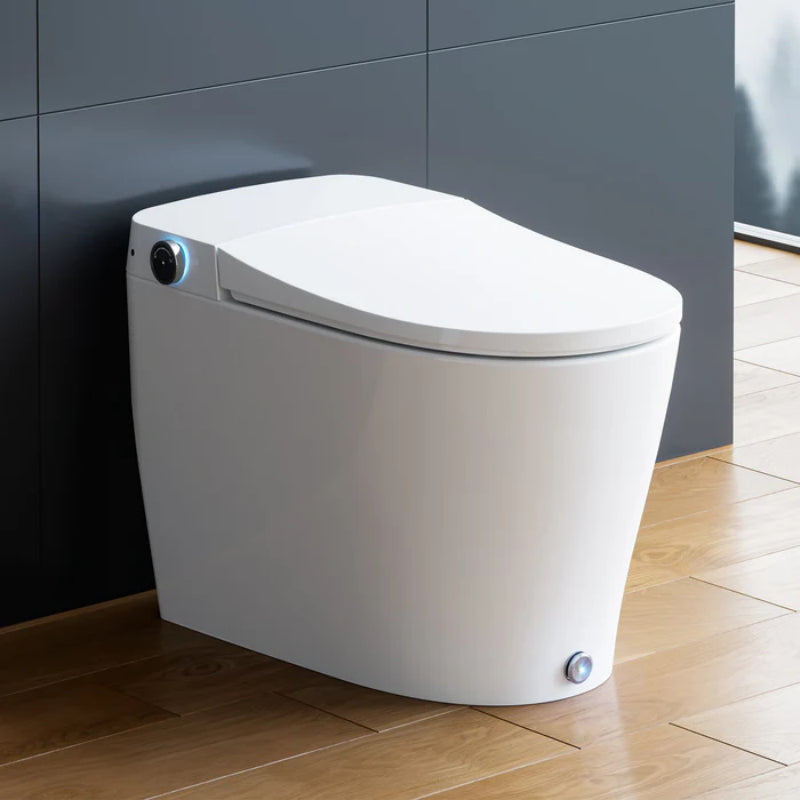
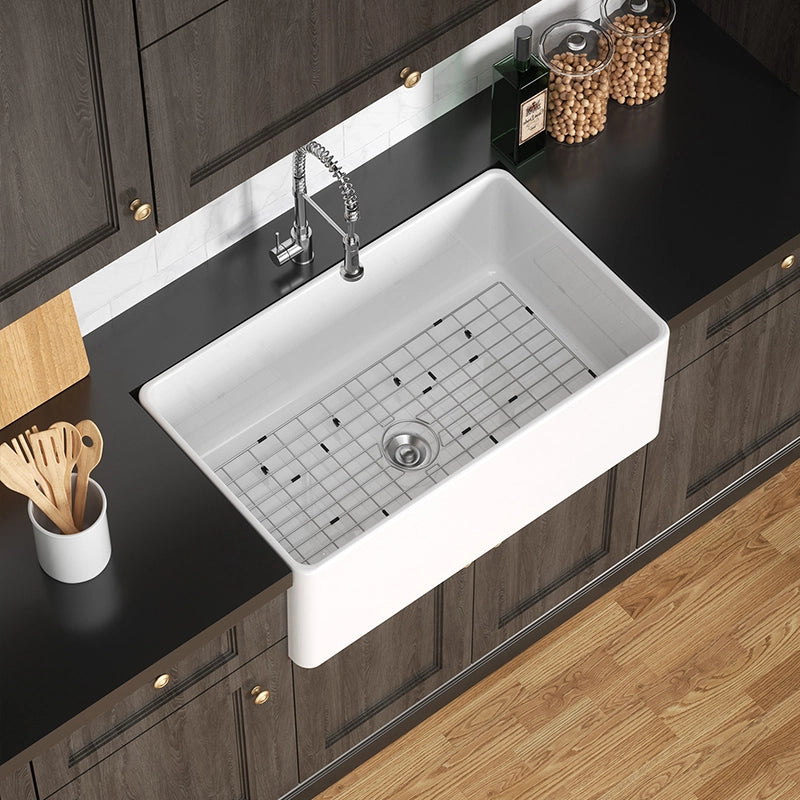
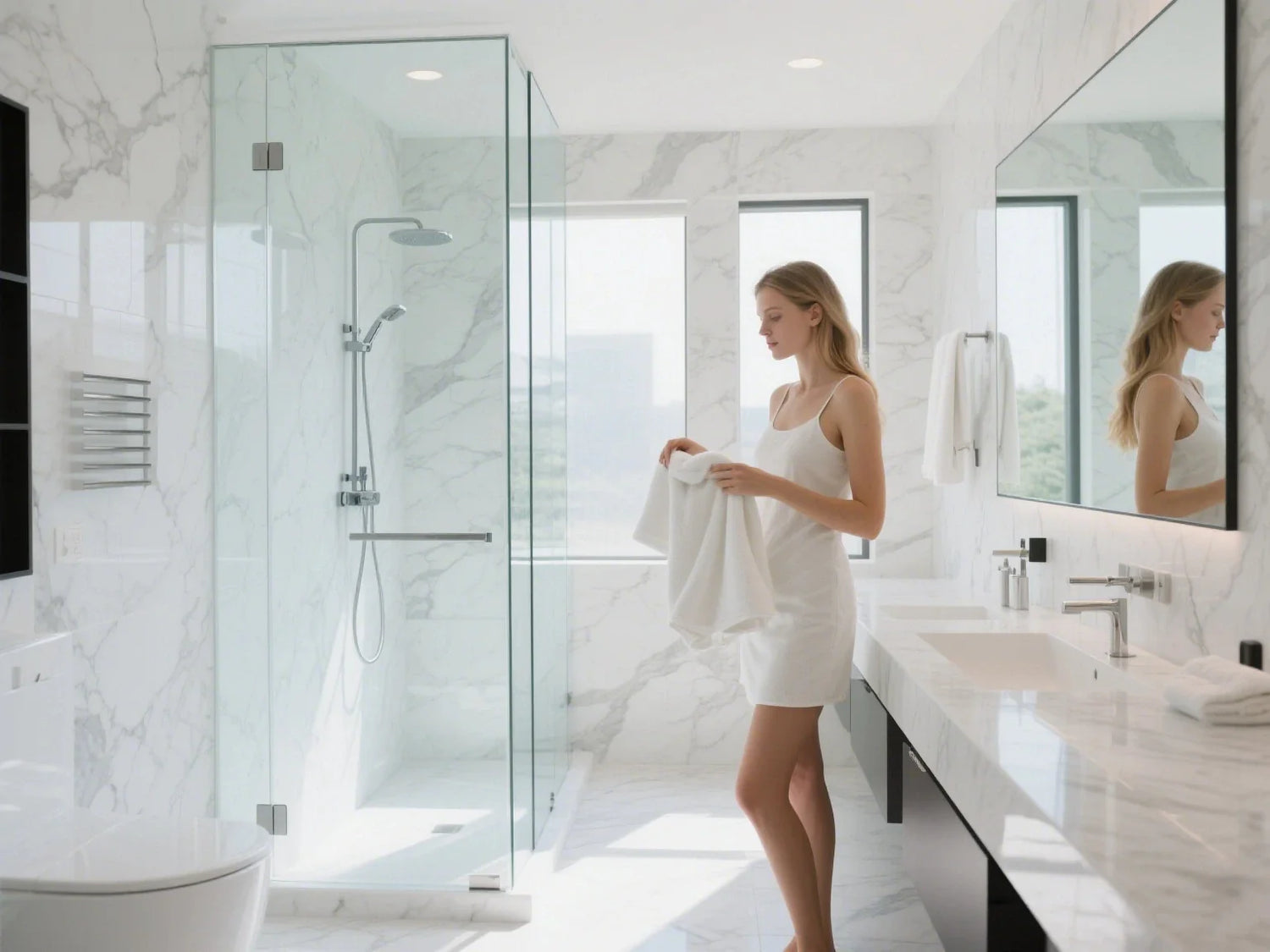
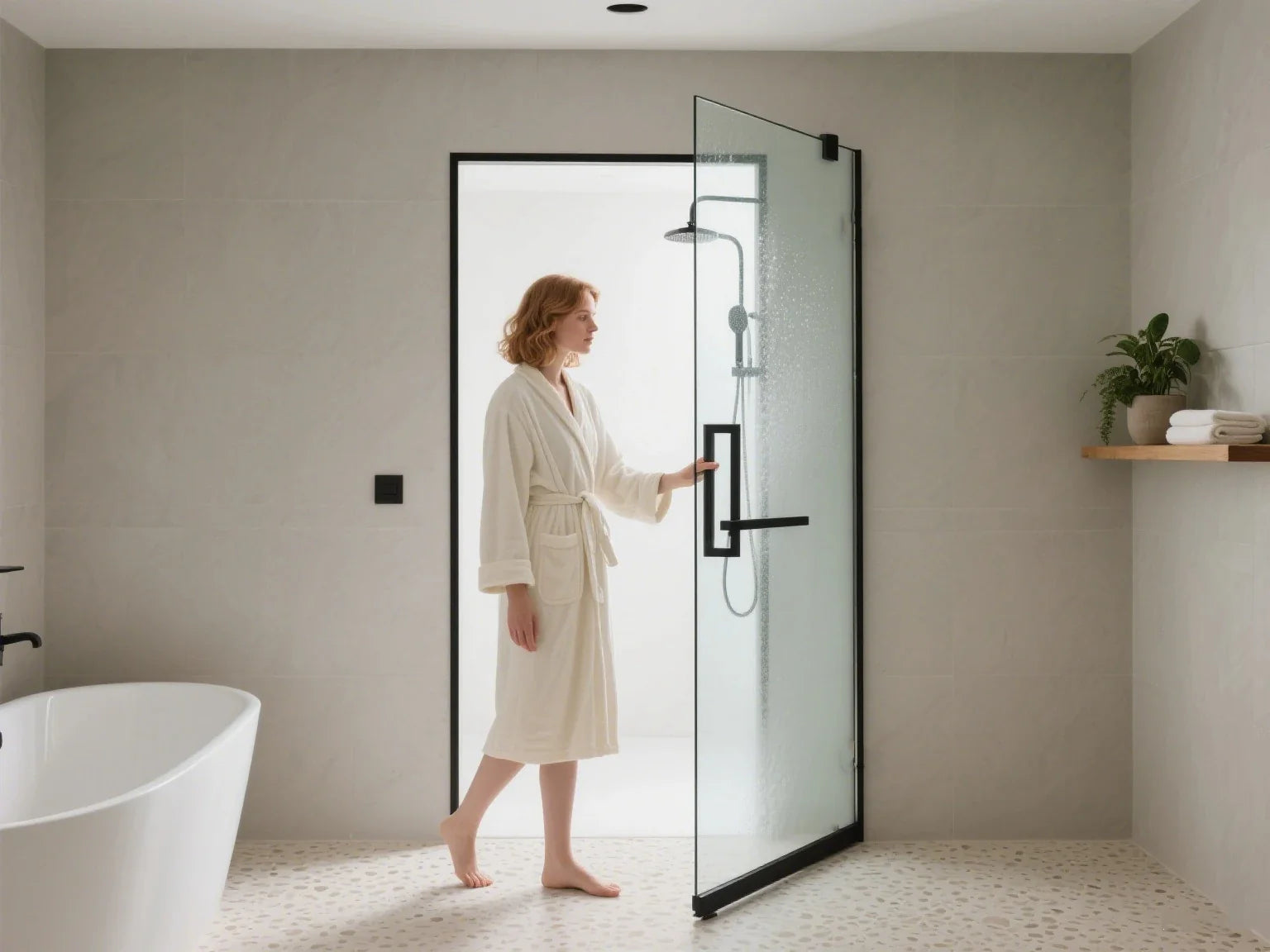


Leave a comment
This site is protected by hCaptcha and the hCaptcha Privacy Policy and Terms of Service apply.